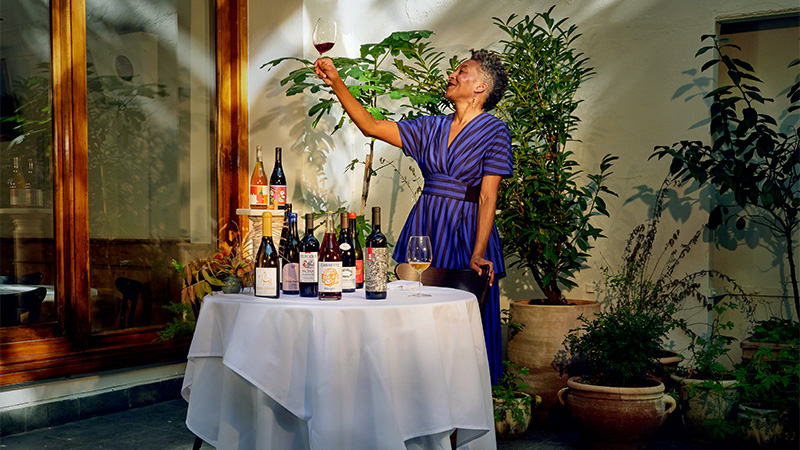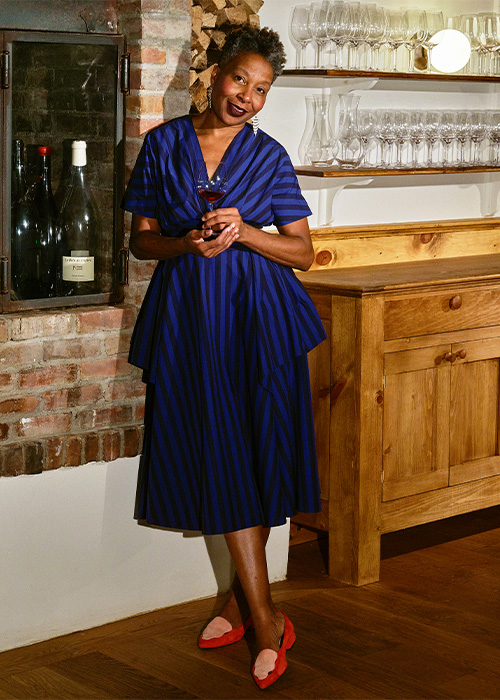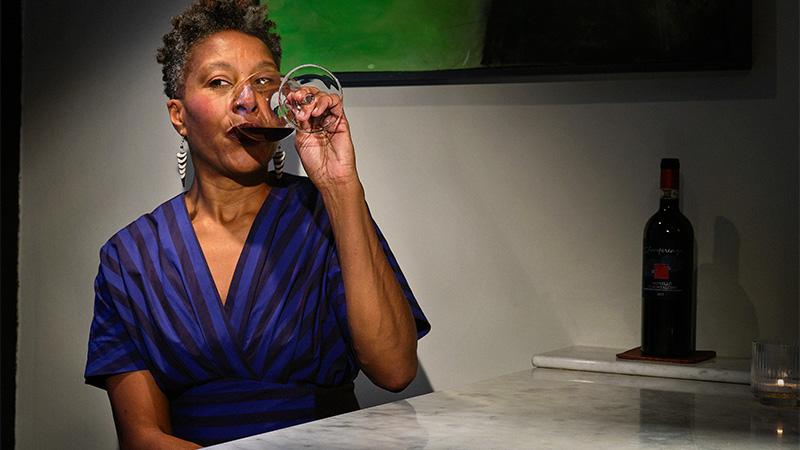This feature is part of our 2024 Next Wave Awards.
It’s hard to think of a job in wine that Lee Campbell hasn’t had. From retail, to restaurant manager and sommelier, to wine director, winemaker, and more, she’s pretty much done it all. But it wasn’t always the career she envisioned for herself.
While an undergraduate at the University of Virginia, Campbell thought she would pursue a political future and completed several internships on the Hill. Following her graduation, she was contemplating attending law school when she had a meal at the trailblazing Restaurant Nora in Washington, D.C. that would change her life. The food was phenomenal, the energy in the space welcoming, and Campbell wanted to be involved. So that same week she inquired about a job and became a personal assistant of sorts to then-head chef Nora Pouillon.
Having decided to pivot to hospitality, she knew she needed clear direction in her professional life to continue climbing the ladder. But the wine realm still felt mysterious to her.
It wasn’t until she was maître d’ at the now-shuttered NYC restaurant Verbena, where wine director David Gordon had compiled a small yet highly intentional selection of bottles, that she thought wine was a feasible path forward.
Years later, while working as a floor manager at Gotham Bar and Grill, her excitement for wine — and her desire to make it the focal point of her career — swelled further. And as she continued to immerse herself in her studies and attend trainings in the dining room, she realized that wine scratched the same intellectual itch that initially drew her to law as a young adult.

“I enjoyed being a manager, but I think there was an academic side that I was missing. I realized that this wine part of hospitality was so imperial and so academic” Campbell explains. “I could continue to challenge myself and challenge my brain and still be in the service space but also in this very sensual, gastronomic space,” she says. “Then I just had to find a way in.”
After receiving her sommelier certification, Campbell was fortunate to have models in Beth von Benz and Susan LaRossa, two professionals who forged a clear path for her to follow in the wine industry. Combined with intensive mentorship from others closer to her, she felt supported and encouraged to find her niche and explore which wines she would champion. Then she discovered natural wine.
“I always felt that people were rooting for me and bringing me into wine comfortably, but I never felt like myself until I found the natural wine contingent,” she recalls. From that moment on, Campbell has remained steadfast in her commitment to natural wines, compiling lists exclusively of such bottles years before all-natural wine bars were the norm. And she continued on this pursuit even when it came with backlash.
“When you believe in the producers you’re choosing, you have a strong foundation to be putting forth bottles you know people will love,” she explains. “People understand that more now, but at that time, I don’t think they did. But who wants to drink the same 20 wines at every restaurant? We would never think that about food.”

A few years after spearheading wine programs for the Tarlow Restaurant Group, Campbell was on sabbatical debating her next move when she was introduced to what would become another great love of her wine life: Virginia wines. Along with her colleague Nicolas Mestre, she attended an event held at Early Mountain Vineyards where she was introduced to then-head winemaker Ben Jordan.
“In no way was I expecting the level of quality that I discovered [at his] hands,” she says. “It entirely changed my understanding of Virginia as a region.”
From there, she took on an ambassador role with Early Mountain, introducing buyers up and down the coast to the label. But her work didn’t stop there. While on that initial Virginia trip with Mestre, Campbell recalls traversing the country roads and stopping alongside a dry creek bed with a highway sign labeling it as Mulatto Run. “It was shocking to see that terminology used so casually,” she says. “I thought, ‘Wow, it’s OK for you to name the creek beds and have these signs up while so few Black people own vineyards and farms?’ Some do, but it’s less and less. It’s a legacy that hasn’t been maintained the way it should have.”
During the colonial period, slave labor was used to plant many of the state’s vineyards, a history that, in many ways, has been entirely glossed over. “I knew then that I could get into Virginia, but I could only do it if it was through ways that made this right,” she recalls. “Ways that honor the diversity that should exist in this commonwealth based on the contributions of African Americans.”
One of the means through which she seeks to make this right is with her work as a partner with Common Wealth Crush, a custom crush facility and business incubator founded in 2022 by Ben Jordan, Tim Jordan, and Patt Eagan. Every year, Common Wealth Crush takes on two new wine brands, spearheading them into existence by providing free winemaking services and use of equipment for the first year, and at discounted rates every year after that. The business also takes on the cost of producing the label’s first vintage to further break down barriers to entry for up-and-coming winemakers.
And when it comes to selecting each year’s new brands, uplifting underrepresented winemakers is a top priority. “We obviously want to hire good people no matter what, but we spend a lot of time doing outreach to ensure the pool we’re drawing from is an inclusive one,” Campbell says. “We work very hard to go into the community to find people who may not have known this existed as a career path or even a side hustle.”
Thus far, the facility has worked with half a dozen brands in its incubator program. And while creating a path forward for winemakers on the production side is the main goal of Common Wealth Crush, mentorship and guidance are also crucial fixtures of the organization.

“Even if people aren’t looking to enter into business or collaboration, they can still come to us for advice. That’s a huge part of what we do,” she explains of not just herself, but each of her partners. “It doesn’t matter if you’re bringing your business to us or you want to do it in a different state or country, we are open for mentoring all the time.”
While she remains a partner at Common Wealth Crush, Campbell has recently directed most of her attention to her latest project as wine director at Andrew Tarlow’s newly opened Borgo. At the Italian restaurant, Campbell shines a light on wines made in the low-intervention style in a list she describes as a unifying moment of all the experiences she’s had in her wine journey.
“I just wanted to have fun with this list, so in many ways, I went back to the beginning, to the wines I’ve always loved,” she says. “So these probably won’t be regions people know me for, but I’m so happy and excited to explore these places again and share them with other people. And hopefully they find them delicious.”
